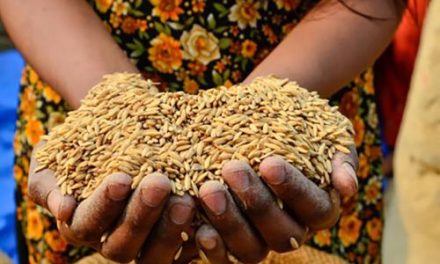
Adolescents in Africa have the highest prevalence of suicidal ideation in the world – Report

The Regional Psychosocial Support Initiative (REPSSI) recently released a Practice Brief that indicates that adolescents in Africa have the highest prevalence of suicidal ideation in the world.
The brief states that between 20% to 25% of adolescents reported suicidal ideation or planning to.
Country Representative of REPSSI Namibia, Simonee Shihepo said the brief is the first in its series and highlights regional level, evidenced learning by REPSSI on the risk and protective factors associated with suicidal ideation among adolescents and young people across Angola, Eswatini, Kenya, Lesotho, Malawi, Mozambique, Namibia, South Africa, Uganda, Zambia, and Zimbabwe.
“The purpose of this brief is to highlight evidence-based recommendations for practice, policy advocacy, and research that have emerged for this study,” she added.
Shihepo explained that the research they did was based on 2266 adolescents and young people between the ages of 12 to 20 years and 62% were female.
“The brief indicated that the countries with the highest prevalence rates were Zimbabwe at 24%, South Africa at 16%, and Kenya at 12%, while the country with the lowest prevalence rate was Uganda at 1% and Namibia was also in the bottom with 5%,” she emphasised.
She further explained that the brief showed that the high prevalence of suicide can be related to few resources, human and financial, dedicated to assisting people with suicidal behaviour, inadequate reporting systems, and persistent stigma.
“Several risk factors have been associated with suicide ideation in the Brief including HIV, poverty, experiencing hunger, being female, being older, not feeling safe, losing a parent, early and unintended pregnancy, violence or abuse and bullying victimization,” she said.
Shihepo further stated that the brief indicates that protective factors may include social support, robust self-esteem and resilience, positive parenting, caregiver stability, and more and the REPSSI programme date helps build on this understanding of adolescent suicide ideation in the East and Southern African regions.
She said the brief has recommended that collaboration should occur across multiple sectors including social services, child protection against violence and abuse, family and community strengthening, education, health, basic services, food security, and livelihoods.
“Interventions working with children should work at multiple levels and focus on improving social connectedness, promoting positive parenting and caregiving, promoting healthy coping mechanisms, helping children stay in school, preventing early pregnancies, facilitating access to basic needs, focusing on older adolescents and girls and preventing forced child marriage,” highlighted Shihepo.
Suicidal ideation refers to having thoughts or feeling related to ending one’s own life and the REPSSI Practice Brief is evidence-based and informed by programme data for several countries as well as literature reviews.
REPSSI works with governments in SADC and East Africa on different programmes to prevent and treat suicide in our societies for more information on REPSSI programmes for your organization, school, church, or family please contact Simonee Shihepo at +264 812 182 994 or [email protected] or their website at www.repssi.org.












































